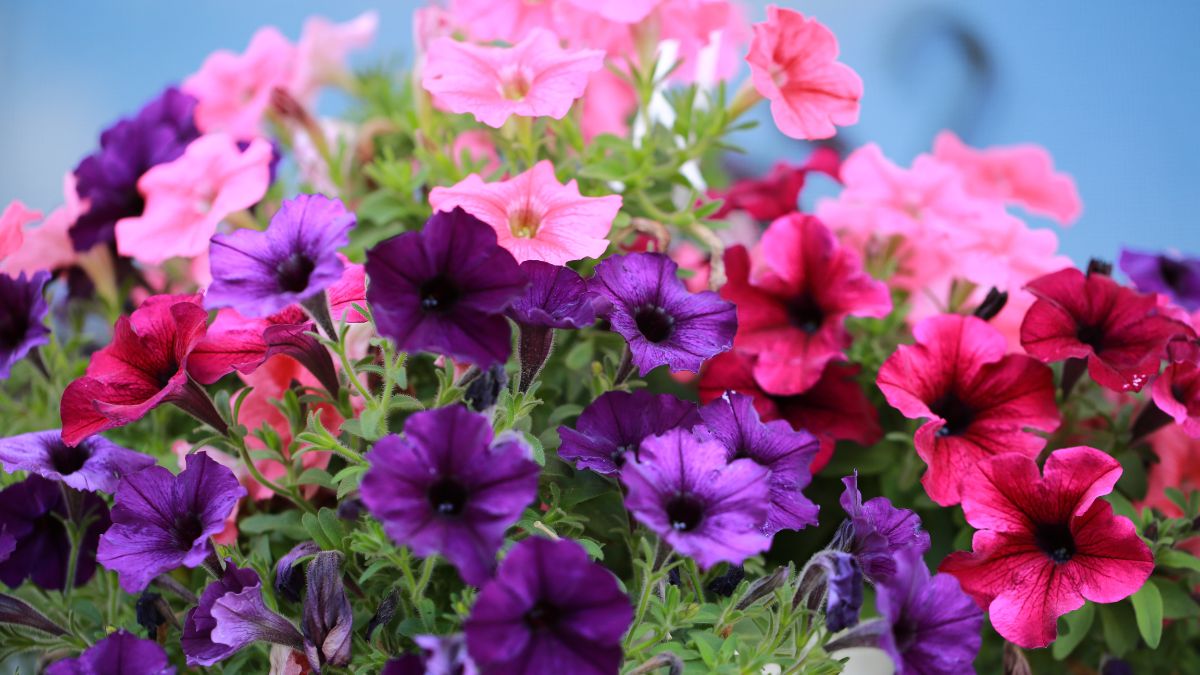What is the Best Potting Soil for Petunias? The aim of this information-rich article is to help you grow healthy and happy plants all year through. Petunias are regarded as easy-to-grow annual. They thrive in plant hardiness zones 2 through 11 of the United States Department of Agriculture.
These plants come in a variety of types with contrasting colors, patterns, and blossoms that come in numerous different colors. Whether you opt to grow these beauties in pots or hanging baskets, they usually thrive in the right conditions.
Keep in mind that when growing petunias in containers, they need light and well-draining potting soil to flourish. Have a look at the information below to get to know and understand your plant better so that your petunia garden will also stay luscious.
Knowing Your Petunia Plants
Petunias or Millifloras as they are commonly identified are compact plants that produce an abundance of exquisite blooms. These flowers grow to about an inch or two in size and are quite lovely when combined with other flowering annuals. They make excellent ground covers or edging plants as they are fond of spreading out as they grow.
There are numerous types of petunia cultivars available that can be classified according to their blossom sizes and growth patterns. These include the Grandiflora variety which offers large blooms and the Multiflora types which bear smaller flowers. Spreading varieties, like the wave petunias, are quick growers that can cover a lot of ground.
You can grow your petunias in containers or large beds depending on the type of plant you choose. This is because while some do well growing in bunches, others have a preference for individual containers. These plants also require frequent fertilization and irrigation to thrive.
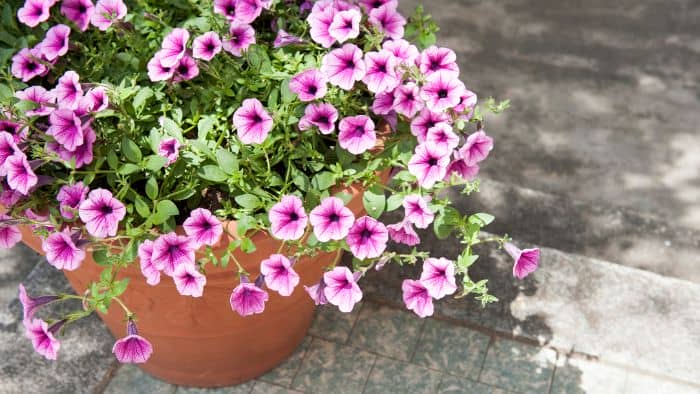
Best Potting Soil For Petunias
For any plant to thrive, its demands should be met timeously. Negligence is a recipe for disaster that will see your plant quickly withering away. For this reason, it is important to know what type of growing medium would work best to keep them in top form.
Here’s What to Look out For:
1. Soil Quality
A potting mix needs to have sufficient drainage so that water can pass through the plant roots. This type of mix will also allow the soil to draw oxygen easily. Petunias demand fertile soil that has at least 25% organic content. This includes peat moss, aged manure, or properly composted organic waste. However, you should be aware that if the plant roots stay wet all the time, they may rot. This is especially true if the potting soil is overly dense.
2. Potting Soil for Seeds
Petunia seeds come in a wide variety of different types that usually germinate during the springtime. When starting the seeds, it is best to use a mix of two parts compost, two parts peat moss, and one part vermiculite. This is amongst the best soil mixes when establishing your plant. make up a nice DIY seed mix. This is because the compost does a good job of retaining moisture while giving the petunias nourishment. Peat moss breaks down gradually, releasing moisture that the flower seeds need to germinate. By retaining air between the flakes, vermiculite fluffs up the mixture which is essential for new growth.
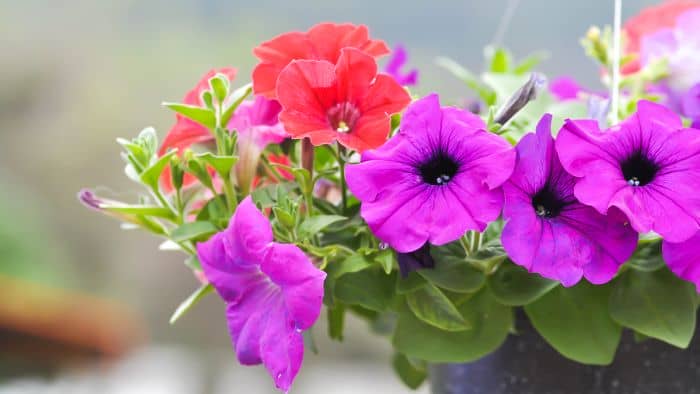
3. Compost
The seedlings grow nicely in a soilless combination when transplanted into containers. Sand, shredded pine bark, and peat moss should be distributed equally throughout the container. Pine bark that has been crushed makes the combination lighter by improving the mix’s ability to contain air. It is also essential to add equal parts of composted organic waste to enrich the mix.
Planting Petunias In Pots – Tips
When planting petunias in pots, there are a few things to take into consideration. Petunias need to be planted significantly closer together in containers in order to appear full. The petunia seeds work best when planted in damp fine-textured soil or seed starter combinations because it adheres to the surface of the mixture.
Listed Below are a Few Tips that You Can Follow when Planting these Beautiful Plants:
- The benefits of starting petunias in pots include a greater selection of types and the ability to grow numerous plants at once.
- The seeds are extremely little and delicate but you can also opt for pelleted seeds which are easier to handle.
- Press the seeds gently into the potting soil with your fingertips or use a light mist of water to wash them in.
- Until the seeds start to sprout, cover the container with transparent plastic and keep it in a sunny location. This typically takes 10 to 14 days.
- You should remove the plastic wrap once the seedlings start sprouting.
- Place the petunias 4 to 6 inches beneath a fluorescent light lamp.
- When the seedlings produce a few leaves, you can then transplant them into pots.
Want to know more about growing these annuals? Click here for additional information.
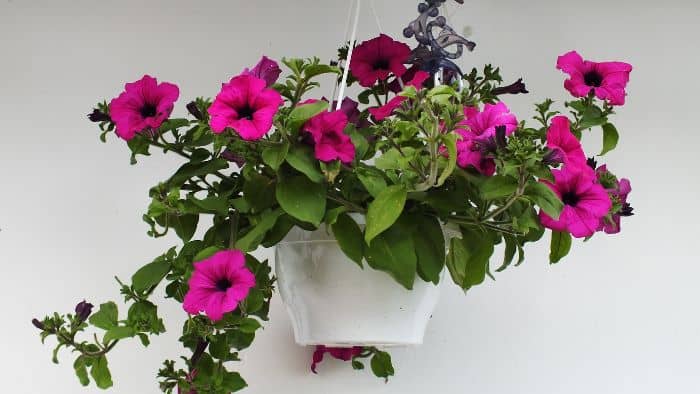
Petunia Plant Care Tips
Just like any plant, petunias also have their demands to keep thriving. This includes growing them in the best potting soil and other specific care tips. Seeing that they offer a rainbow of colorful blooms, ensuring that they stay in prim and proper shapes is vital. Have a look at the care tips below to help your plant grow its best.
Tips:
- Petunias require at least 5 to 6 hours of adequate sunlight daily as they thrive in humid conditions.
- These plants will produce fewer flowers if grown in a shaded area.
- Impatiens are a better option, especially for areas with a lot of shade. This is because this particular variety blooms well in these conditions.
- It is also essential to ensure that you make use of well-draining soil even if it is not overly rich.
- Conditioning garden soil with organic matter will prove beneficial to your plant throughout its growth span. These include amendments such as peat moss, compost, or manure.
- Use a rototiller to loosen up the soil, enhance drainage, and make sandy soil more capable of retaining moisture and nutrients.
- It is essential to use a liquid fertilizer every week for spreading varieties.
- Having an accurate soil test conducted will ensure that you’re keeping up with the requirements of your plant.
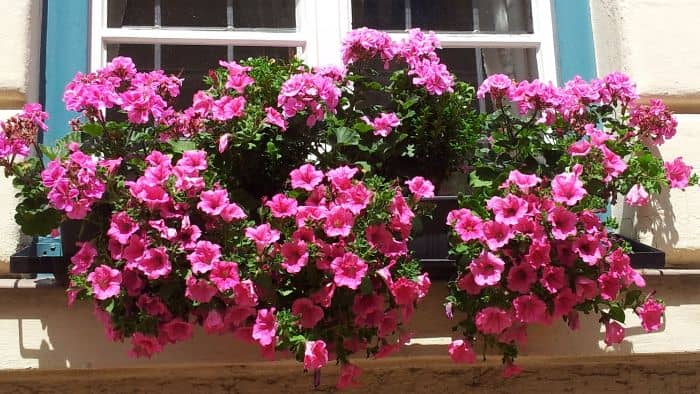
Conclusion
The aim of this blog post was to help you grow beautiful petunias in your home or garden. Although these plants are not very demanding, growing them in the best soil will keep them thriving. However, keep in mind that you should remove faded blooms whenever they appear.
This will keep your plant healthy and increase the number of flowers they bear. The procedure known as deadheading promotes blooming by limiting the development of seeds. This is relatively true for flowering annuals in containers as they require it.
It will keep them healthy and well-groomed in addition to extending blooming. These plants offer an abundance of flowers which is beneficial for bouquets and other floral arrangements. Here’s a video to help you keep your petunias lush.
FAQs
[rank_math_rich_snippet id=”s-bc2fd951-cc0b-4a58-8112-a3776bd47091″]

